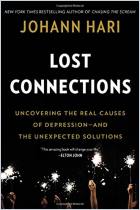
What You Can Change and What You Can't
The Complete Guide to Successful Self-Improvement
Used by arrangement with Alfred A. Knopf, a division of Random House, Inc.
ISBN: 9781400078400
Pages: 336
Recommendation
The self-improvement industry spends billions to convince people that their psychological and physical problems are fixable. The magazine covers at the checkout counter extol the latest miracle diet, but most of the people in line with you are overweight. Seasoned mental-health professional and former president of the American Psychological Association, Martin E. P. Seligman, Ph.D., has bad news for the seriously overweight: Diets don’t work. Plus, he tells alcoholics and people with deep-seated emotional afflictions, there are no definitive cures for them. He notes, however, that a large minority of alcoholics do recover, though no approach is guaranteed. Seligman, whose views have generated both gratitude and controversy, details which psychological problems are treatable and which are not. His candid attitude is laudable and his advice seems well-informed, if perhaps generalized. If you’ve gotten thin, you’ve beaten the odds. Meanwhile, he recommends that people learn to live bravely with daunting emotional issues they cannot completely master – because, he says, mastery probably isn’t possible. getAbstract finds this treatise about what is and isn’t fixable both sobering and valuable.
Summary
About the Author
Martin E. P. Seligman, Ph.D., is a psychology professor and director of the Positive Psychology Center at the University of Pennsylvania, and the former president of the American Psychological Association.


















Comment on this summary